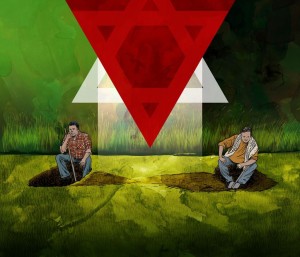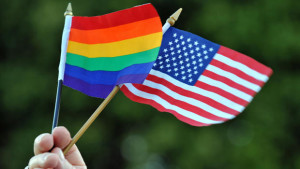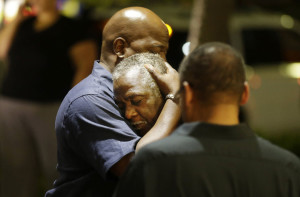A friend from Australia, visiting India for the second time, remarked that compared to his own country, India is very honest—honest in the sense that when you’re here, you can have no illusions about the injustice and suffering around you. It’s right in your face: income disparity, discrimination, sexism, poverty, disease. Rich and poor meet on the street, where wealthy men in their big SUVs bully and sometimes run over the poor men on bicycles. The rich and poor interact daily in homes, where the wealthy pay a pittance to impoverished servants who cook, clean, and sometimes even raise the children of the wealthy without ever gaining their respect. The powerful abuse the weak in every arena of life: men harass and rape women, influential families bribe the cops to get away with land grabbing, murder, and everything in between; police and lawyers alike extort poor families for money with threats of their loved ones being indefinitely imprisoned otherwise. People make no secret of their dislike for dark skin and openly discriminate in marriage, the work place, and the community based on skin color. Restaurants and factories openly use child labor to create everything from furniture to motorcycles to potato curry.All of these power dynamics, and all of the suffering that results from it, are disturbing to watch. People’s arrogance, self-importance, prejudice, and blatant disregard for other human beings is infuriatingly obvious in the most routine daily interactions of Indian life. But my Aussie friend is right that there is something refreshing about at least having it out in the open. In our home countries, the child labor that goes into our home furnishings and wardrobe is hidden away in factories on the other side of the world, far away from the air-conditioned malls and classy stores where we actually buy our stuff. The disparity between the wealthiest and poorest members of our society has never been higher, but the spheres of the rich and poor are separate enough to keep them from ever interacting with each other: rich people don’t take the bus, poor people don’t go to private school, and poverty is contained in certain neighborhoods whereas wealth is contained in certain other neighborhoods—usually neighborhoods with gates or at least with a buffer zone of several miles of carefully landscaped distance between them and the nearest depressed area.
And so our prejudices remain intact, but we’re too tactful to voice them most of the time.
We hide them, even from ourselves.
Our politics are perfect, utterly correct, when it comes to language.
At least, usually this is how it is. But then a white police officer shoots a black teenager and then even if you don’t consider the event itself to be indicative of any larger problem, it’s impossible to observe the aftermath of the shooting and deny that our country has a race problem. The underlying fear and alienation that’s been there all along bubbles up to the surface: an entire [black] community rises up, refusing to consent any longer to a well-armed authority structure that has never had their interests at heart. The [white] police respond by declaring war on the community, betraying the deep-seated fear they have harbored all along of these people they consider sub-human; voicing aloud the belief that they are “f***ing animals” who have never deserved the full protection of the law anyway.
I find it ironic that so many people whose conservative leanings would generally lead them to denounce big government, expansion of government power, and any infraction of citizen’s rights have automatically sided with a police officer acting as judge, jury, and executioner of an unarmed teenager in a stunning corruption of the legal system as we know it. Furthermore, they continue to side with heavy-handed state violence against ordinary citizens exercising their democratic right to protest.
I find it depressing that so many people whose Christianity should generally lead them to feel compassion and to side with the oppressed have instead sided with the oppressor, not only pontificating judgmentally and heartlessly about the character of the victim and how his execution was likely deserved (due to a $50 theft), but also condemning the community’s reaction to this unjust situation instead of calling out the injustice for what it is.
I think the reason for these strange reversals of loyalty in both cases is that the deepest loyalty actually lies along fault lines of race rather than religion or politics. If a white teenager had been killed, and if the protests were happening in a wealthy white suburb, then things would be different. Suspicion and judgment would fall on the murderer and not the murder victim. Sympathy would lie with the grieving family and their community rather than with the state apparatus. If the guns and the tear gas and the armored vehicles were pointed at “us” and not at “them”, then we would be quicker to recognize this as the blatant, evil, violent abuse of power that it is. The killer would be awaiting criminal trial instead of enjoying paid administrative leave from work.
When we look at how quickly this one man’s death has escalated into police firing tear gas and rubber bullets into a crowd of peaceful protestors from the safety of an armored vehicle, and protestors responding with rocks and now Molotov cocktails and bullets of their own, we realize that this didn’t start with Michael Brown. It didn’t even start with Trayvon Martin, though the blatant miscarriage of justice in that case certainly reinforced the message that the system—police, courts, public opinion—will automatically operate with a racial bias towards protecting and believing whites over blacks. This is part of a legacy of fear, hatred, and separation that is as old as our country, and it is a disease that will continue to plague our society until we decide to face the beast by exploring the dark fears and prejudices in own hearts, even and especially the ones we are not fully aware of. Healing ourselves and our nation will require admitting the ignorance on which so many of our attitudes and ideas are based, because we have been so busy justifying ourselves and defending our establishment to ever truly listen to and engage with the experience of the Other. As a white woman, I don’t believe that most of us white Americans have ever truly acknowledged the race situation in our country. We are too eager to “move on” with history, to sweep the sins of the past under the rug and encourage everyone to simply pretend that there are not still festering wounds and real-life, still-unfolding consequences of everything that has gone on before.
Many people have angrily pointed out the violence of some of the protestors in Ferguson, implying that perhaps Michael Brown had it coming because he was just as violent, or that this behavior demonstrates how inherently violent the black community is and how their complaints are therefore invalid. It’s true that if demonstrations had remained entirely peaceful, they could have been an even more powerful witness to injustice by throwing the violence of the police into the sharp relief against the defenseless and brave confrontation of unarmed protestors. I am saddened that a few community members have muddied the waters by turning to violence as their expression of grief and anger, because paradoxically it is they—the powerless ones, the ones who have been wronged—who actually hold the power to transform the situation. The right to extend forgiveness and thus break the cycle of evil is theirs and theirs alone.
But don’t think for a moment that the violent actions of a few individuals invalidate the grief and anger of this entire community against injustice. They—and we—should be furious about the slaying of an unarmed black man for no apparent reason. We should remember that it was the systematized, unchallenged violence and disdain of the mostly-white police department over several decades that provoked the current violence in Ferguson.
To quote Paulo Freire, “Violence is initiated by those who oppress, who exploit, who fail to recognize others as persons—not by those who are oppressed, exploited, or unrecognized… It is not the helpless, subject to terror, who initiate terror, but the violent, who with their power create the concrete situation which begets the ‘rejects of life’… It is not the despised who initiate hatred, but those who despise. It is not those whose humanity is denied them who negate men, but those who denied that humanity… For the oppressors, however, it is always the oppressed (whom they obviously never call ‘the oppressed’…) who are disaffected, who are ‘violent’, ‘barbaric’, ‘wicked’, or ‘ferocious’ when they react to the violence of the oppressors.” –Paulo Freire, Pedagogy of the Oppressed, p. 41
As a white American, I have been disturbed by the fear, suspicion, and anger that many other white people have been expressing on social media over the past several days. I am saddened by the knowledge that Michael Brown’s death, which should be a wake-up call for us to address the root issues of violence and alienation in our society, has instead become an occasion for rallying around the people who are like us. We are becoming more closed, more angry, less willing to listen, less willing to admit our own conscious and unconscious role in creating this broken, sinful, segregated society. Laws have been passed and progress has been made towards equality, but we still have a long way to go in this country if we are seeking racial reconciliation. Legal reform won’t take us the rest of the way, because the violence and separation that remains is within our own hearts and minds, and within our continuing isolation from one another. We continue in our unwillingness to suspend judgment long enough to enter into the experience and perspective of the people who aren’t like us. We’re too afraid of their anger (and perhaps too afraid of our own guilt or the awkwardness of dealing with strong, wounded emotions) to even hear them out.
I grew up in an upper-middle class white suburb, so I had very few black people in my life growing up. In college I had a few black friends and even attended a mostly black church for awhile, but with this limited experience I still cannot claim to know the first thing about what it’s like to be black in America. I have also lived for several years in cross-cultural situations in which I am the racial and cultural minority, but the color of my skin has always worked in my favor, commanding instant interest and respect. If I have ever been stereotyped, it has usually been as someone more qualified, educated, or wealthy than I actually am. I don’t know what it’s like for my skin color to work against me; to automatically trigger suspicion, fear, or disrespect.
If your background is at all similar to mine, then you share my ignorance. It’s time for us to be honest about what we don’t know, to ask others to teach us, and to be willing to shut up and listen when they do.
As limited human beings with particular sets of experience, we all start off being ignorant of what lies beyond our own immediate field of vision. Taking on our society’s subtle assumptions, stereotypes, and prejudices as children is entirely natural, unavoidable, and doesn’t make us bad people. Moral decision only comes in when we begin to realize our ignorance. Then we have a choice: either remaining as we are, covering our ears, closing our eyes, or talking over others to claim that we already know; or opening our minds and our hearts to others in the humble admission that we do not know, that there are things about which we are wrong. We have the choice to be willing to learn, and to change.
The more tightly we hold onto the belief that we can already see, the more blind we become.


